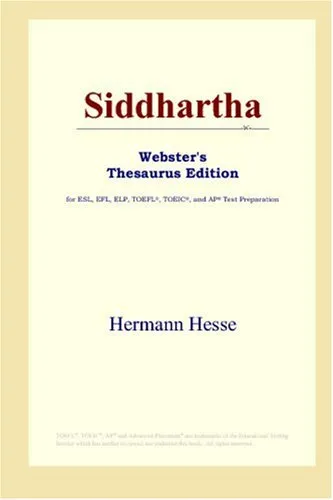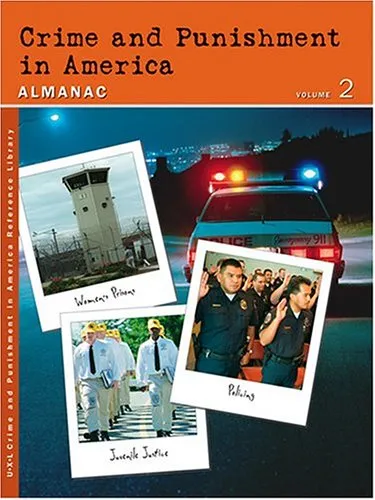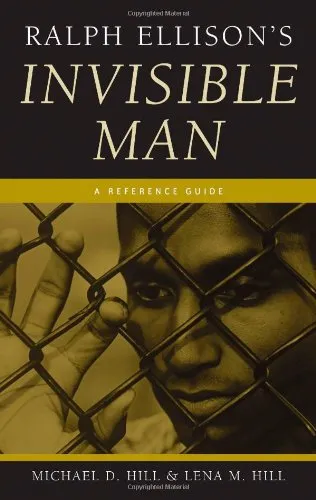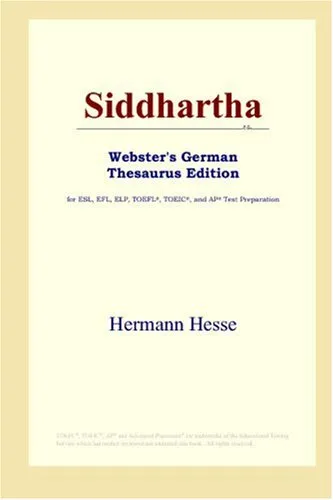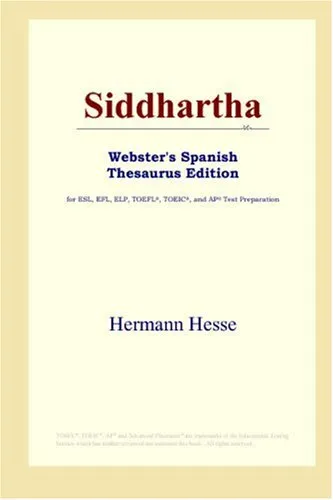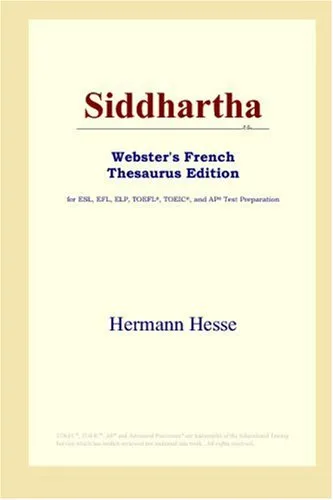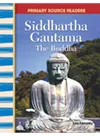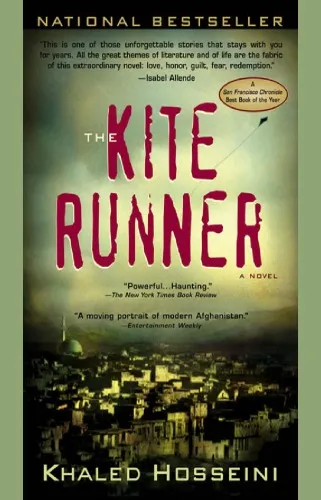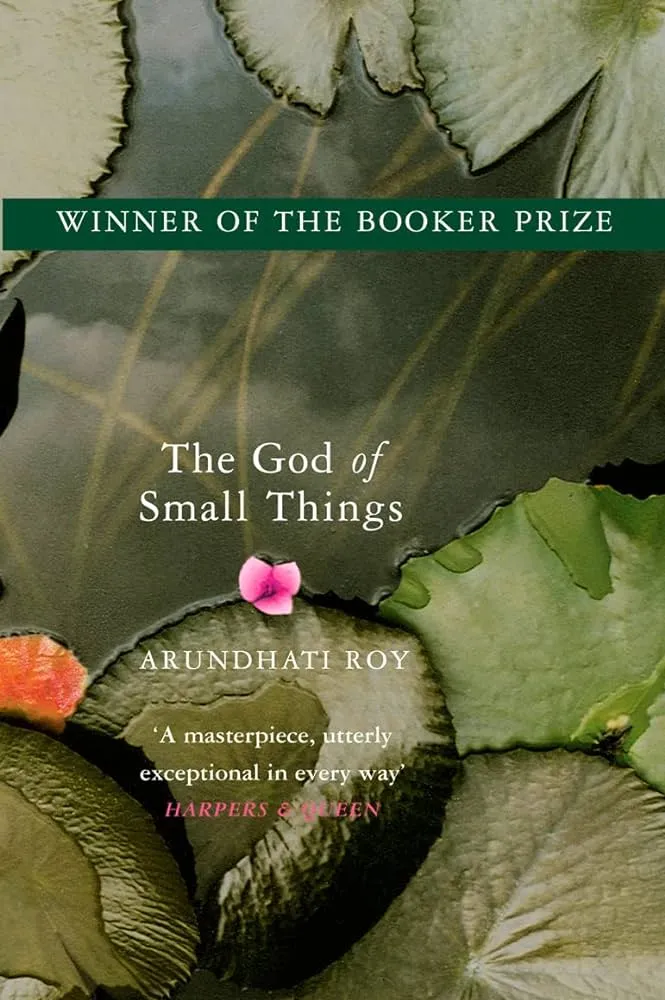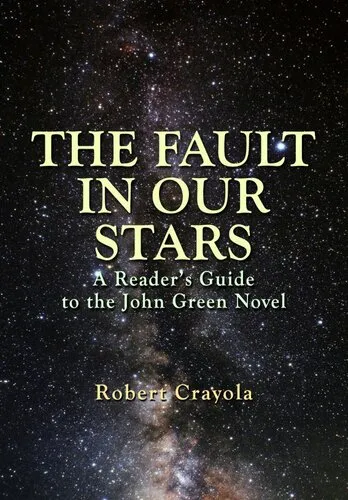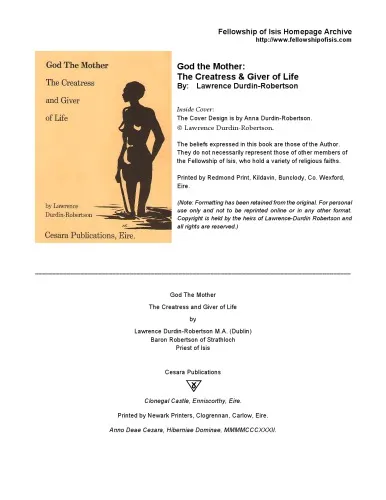Siddhartha (Webster's Thesaurus Edition)
4.1
Reviews from our users

You Can Ask your questions from this book's AI after Login
Each download or ask from book AI costs 2 points. To earn more free points, please visit the Points Guide Page and complete some valuable actions.Related Refrences:
Persian Summary
Introduction to Siddhartha (Webster's Thesaurus Edition)
"Siddhartha (Webster's Thesaurus Edition)" is a special rendition of Hermann Hesse's classic novel that combines the original literary charm with comprehensive language aids from Webster's Thesaurus. This unique edition enhances readers' engagement with Hesse's eloquent prose, providing synonyms and definitions, enriching the reading experience and enabling a deeper understanding of the narrative's philosophical depth.
Detailed Summary of the Book
Set in ancient India during the time of the Buddha, "Siddhartha" narrates the spiritual journey of its eponymous character, Siddhartha, a young man thirsting for enlightenment. Siddhartha, the son of a Brahmin, embarks on a quest that leads him to reject traditional religious practices in favor of a path of his own making. Throughout his journey, he encounters various spiritual guides and experiences the allure of material wealth and the despair of worldly desires.
Siddhartha initially joins a group of ascetic Samanas, seeking to eradicate the self through severe austerity. Dissatisfied, he meets Gautama Buddha, recognizing the profundity of his teachings but choosing not to follow, aiming instead to find his own spiritual awakening. His journey brings him to Kamala, a courtesan who teaches him the art of love, and to a businessman, Kamaswami, under whom Siddhartha becomes wealthy but spiritually bankrupt.
Disillusioned by a materialistic life, Siddhartha wanders again and finds solace beside a river. Through a simple ferryman named Vasudeva, he learns to listen to the river's wisdom, attaining true understanding and enlightenment. The novel concludes with Siddhartha embracing the transient beauty of life, realizing that wisdom cannot be taught but must be experienced.
Key Takeaways
- The quest for self-discovery and enlightenment is a deeply personal journey that must be tailored to individual experiences.
- True wisdom transcends formal education and written doctrine; it is best captured in the silent teachings of nature and personal introspection.
- Life's meaning can be understood by embracing both the pleasures and sufferings that come with existence.
- The concept of non-attachment is pivotal to spiritual peace, as demonstrated through Siddhartha's ultimate awakening beside the river.
Famous Quotes from the Book
"Wisdom cannot be imparted. Wisdom that a wise man attempts to impart always sounds like foolishness to someone else."
"I can think, I can wait, I can fast."
"When someone is seeking, it happens quite easily that he only sees the thing that he is seeking."
Why This Book Matters
"Siddhartha" is a profound exploration of the determinants of true happiness and the complex nature of the human soul. Its significance lies in its timeless approach to questions regarding the fulfillment of the spirit, making it relevant across cultures and generations. This edition, enhanced by Webster's Thesaurus, not only brings clarity to Hesse's philosophical narrative but also invites new readers into its timeless reflection on life’s interconnectedness.
This novel remains a source of inspiration for those seeking a deeper understanding of themselves. It has impacted readers worldwide with its universal themes and evocative prose, illustrating the illusion of dualities and the potential for unity within each individual.
Free Direct Download
You Can Download this book after Login
Accessing books through legal platforms and public libraries not only supports the rights of authors and publishers but also contributes to the sustainability of reading culture. Before downloading, please take a moment to consider these options.
Find this book on other platforms:
WorldCat helps you find books in libraries worldwide.
See ratings, reviews, and discussions on Goodreads.
Find and buy rare or used books on AbeBooks.
1507
بازدید4.1
امتیاز0
نظر98%
رضایتReviews:
4.1
Based on 0 users review
Questions & Answers
Ask questions about this book or help others by answering
No questions yet. Be the first to ask!
